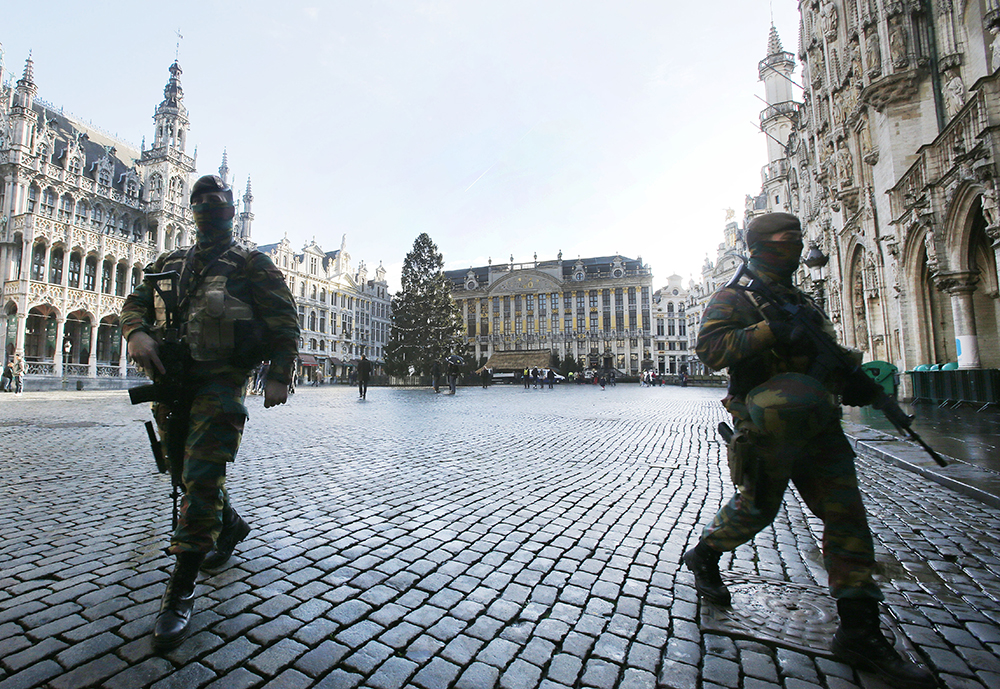Home » The Brussels dilemma: psychology of terror
The Brussels dilemma: psychology of terror

The attacks in Brussels on March 22nd were tragic but sadly not unexpected. Brussels – particularly the district of Molenbeek – has long been a simmering hotbed of Islamic extremism. A man from Molenbeek participated in the 2004 Madrid Train Bombings, and the perpetrator of the thwarted Thalys train attack in 2015 also had connections to the troubled district. Per capita, more residents of Belgium have left to join ISIS than residents of any other Western European country and the majority of the departures lived in Brussels, which is home to about half of Belgium’s 670,000 Muslims. Belgium struggles with extremism more than the rest of Europe due to an unfortunate confluence of circumstances that leaves many immigrants from Muslim countries isolated, unintegrated into society, and ultimately vulnerable to the attractions of extremist ideology.
The unemployment rate in Brussels is startlingly high. Last month was the first time in four years that the jobless figure was reported to be below 20% while in some districts of Brussels the situation is even worse. In Molenbeek for instance, unemployment rates are estimated to be as high as 40%, five times the national average. In comparison, the average unemployment rate for the European Union is 9.6%.
Part of the reason unemployment is so much higher in Brussels than the rest of Belgium is the nature of Brussels’ economy. As the centre of the European Union, Brussels has a services-centred economy with a job market that primarily requires skilled workers with good language skills – drawing hundreds of thousands of commuters from the neighbouring regions. Industrial and agricultural jobs, traditionally the recourse of immigrants with poor language skills, made up only 18.6% and 1.3% of the labour pool respectively in 2013, with most of these jobs being based outside of Brussels. As such, the barrier to entry into the workforce for lowly-skilled, language-challenged migrants is particularly high.
Working has traditionally been the way that an immigrant integrates into society, but other factors like a strong sense of national pride or identity can help immigrants assimilate. Unfortunately, Brussels and Belgium also perform poorly in these respects. Rather than having a unifying national language, Belgium has linguistic zones which split the country into French and Dutch-speaking areas. This dialectal divide precludes a national education plan or national television channel, and, consequently, precludes a national identity into which immigrants can easily integrate themselves. As an easy illustration of the problem, residents of Belgium will often principally define themselves as Flemish (Dutch-speaking) or Walloon (French-speaking), rather than “Belgian.” An immigrant who does not speak either language natively cannot belong to either group.
An inability to be part of the national identity is isolating enough, but it gets worse: polls suggest that some Belgians have begun leaning to the far-right and turning against Islamic immigrants, further cutting them off from common society. The Vlaams Belang (“Flemish Interest”) party, a far-right group which has advocated against immigration and multiculturalism, holds several seats in the Belgian Chamber of Representatives and Senate. Public interest in Vlaams Belang has skyrocketed; their Facebook page has seen a 30-fold increase in “likes” since the bombings on March 22nd. More publicly, on March 27th hundreds of right-wing protesters battled with police on the streets of Brussels, chanting anti-immigrant and anti-Muslim slogans.
While these spikes in anti-immigrant, anti-multicultural and anti-Muslim sentiment may be understandable in the aftermath of the bombing of a civilian target, they are also incredibly dangerous because they feed into the “us versus them” message propagated by extremist religious leaders. A community which feels threatened becomes more insular and less willing to cooperate with outsiders such as law enforcement, and more willing to aid people known to them, even if those community members are breaking the law. In Molenbeek, for example, investigators were stonewalled for nearly four months during their search for Salah Abdeslam, one of the perpetrators of the November attacks in Paris. Eventually, Abdeslam was captured alongside three members of a family which had been sheltering him.

Ultimately, the isolation felt by immigrants in Brussels is a substantial problem, particularly when combined with the lack of economic opportunity and little pressure to integrate. Altogether, these factors increase the likelihood that the Muslim immigrant community in Brussels will continue to provide aid to extremists and be receptive to the extremist message. Investigators, counterterror officials, and politicians alike will need to continue to bear the heavy burden of acknowledging the fears of citizens without giving into blanket anti-immigrant or anti-Muslim rhetoric which will further fan discord and make the fight against extremist networks even harder. For the foreseeable future, Belgium will need to work with its multicultural communities to root out and destroy terror networks, and sending the right message, improving job opportunity, and providing easier routes to integration will be critical to that fight.
Colin is the Analysis division’s all-rounder editor, specialising in counter-terrorism and counter-insurgency issues.

